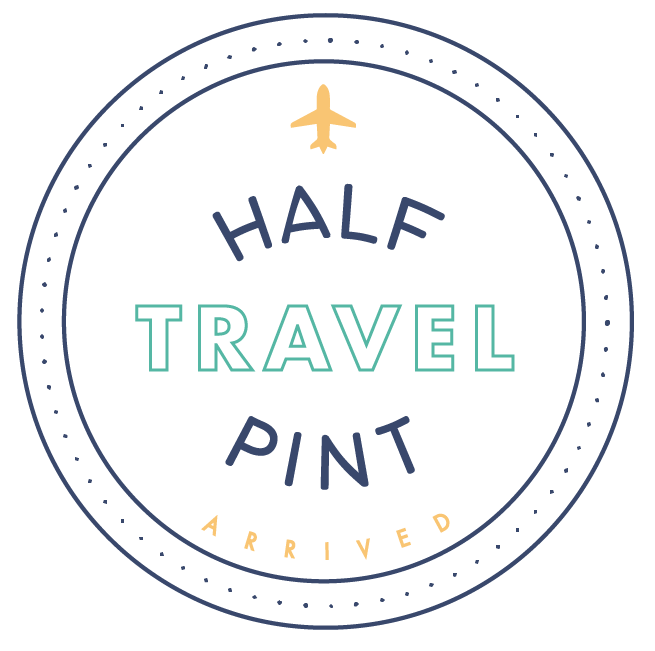Sick kids on vacation? Don’t Panic—Prepare
Nothing is worse than having a feverish child on vacation, especially when you’re unfamiliar with local medical options. A few easy tasks, from packing basic meds in your carry-on to boosting your immune system before your trip, will help you prepare for the unexpected. Read on for the doctor’s orders.
Josh and Thomas the day after the norovirus hit.
When Thomas was six months old, we to San Miguel de Allende over the holidays. Thanks to its charming main square and pedestrian-friendly streets, the city is ideal for a family trip. So we were thrown a bit of a curve ball when Mr. T got sick, very sick, with a high fever, vomiting, and let’s just say a symptom that ensured I quickly familiarized myself with Mexican diaper brands. Our villa manager referred (and accompanied) us to a local doctor, who diagnosed Thomas with a norovirus—yes, like the kind you hear about taking over the Royal Caribbean.
It was a learning experience, to say the least, one that inspired me to reach out to Dr. Abedin, a D.C. native and graduate of the Medical College of Virginia who is board-certified in pediatrics and internal medicine, and runs a travel clinic in Leesburg, Virginia.
Below, he walks me through healthy trip prep, kiddo jetlag tips, and—yes, I asked—whether you should give your child Benadryl on a plane.
Oh, and do you know who turned out to be a fantastic little traveler? That norovirus. By the time New Years rolled around, 31 of our family members had fallen ill. Merry Merry indeed.
What basic first aid supplies do you recommend parents bring on a trip?
Oral rehydration solutions [such as Pedialyte] and Tylenol are the two must haves for babies. For kids over two years old, also bring Motrin and probiotics.
Which of these items would you recommend putting in a carry-on vs. the checked luggage?
Medications in general should be with you. The oral rehydration solutions can be placed in luggage, but must be packed carefully.
Is there anything you suggest doing to minimize your risk of getting sick on an airplane?
Cleaning your tray table and arm rests with an anti-bacterial wipe can be helpful, but the most important thing to do is wash you hands before you eat and especially after using a bathroom.
Do you have any tips for parents with a crying baby onboard an airplane?
Definitely have the baby feeding during take off and landing and have distractive toys on board with you. An aisle seat is a must for frequent walks. And don’t overlook the cabin crew; they’ll often help out and give tired parents a break when asked.
Do you have any advice for children that are dealing with jet lag?
I recommend waking your kids and feeding them on the schedule of the destination. That is perhaps the easiest way to adjust.
What do advise your patients to do if their child gets sick while they're traveling abroad?
Unfortunately this question can’t be answered broadly. It really depends on how old and how sick your child is. Dr. Abedin's PA Kelly Boardman adds, "Prevention is key with traveling. I load my family up on things like Vitamin C and Vitamin D a couple days before traveling to boost our immune systems. Knowing where you need to drink bottled water and avoiding raw vegetables can help prevent GI illness (diarrhea). Using bug repellant and knowing how to use mosquito netting can help prevent annoying bug bites, but also illnesses such as Zika, Chikungunya, and Malaria."
Other than getting timely care, are there any advantages of going to a local clinic vs. waiting until you come home to see a doctor?
It really depends of the location. Some countries offer great clinics; others may be less dependable.
A lot of parents ask me about giving children Benadryl on red-eye flights. What are your thoughts?
It’s not recommended by the AAP (American Academy of Pediatrics), and a subset of kids react paradoxically to it and are wired, so you have to be careful. It’s not something I recommend. For older kids, Melatonin is a safer alternative.
Are there any resources on this subject that you recommend?
The CDC’s (Center for Disease Control and Prevention) Travelers’ Health site is very good.
What other questions—or tips!—do you have for staying healthy on the road? Let me know below.
Solve the puzzle!
What kind of tools does a doctor use? The list is below—see if you can fill in these words using the letter clues!
S T _ T H _ S _ _ P E
T H _ _ M O M _ _ _ R
X -_ _ _
O _ O _ _ _ P_
B_ _ D-A _ D S
R _ F _ _ X H A _ _ _ R (two words)
Answers: Stethoscope, Thermometer, X-ray, Otoscope, Band-Aids, Reflex Hammer


